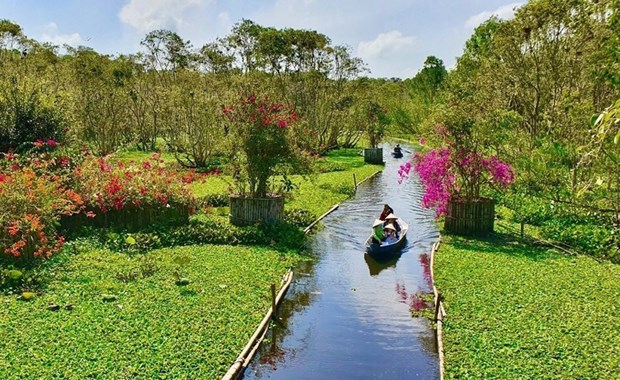
It is becoming difficult to ensure the quantity and quality of workforce for the tourism sector after the COVID-19 pandemic. The sector needs an influx of quality staff to meet the needs of the rising tourism industry.
It is becoming difficult to ensure the quantity and quality of workforce for the tourism sector after the COVID-19 pandemic. The sector needs an influx of quality staff to meet the needs of the rising tourism industry.
 |
| Experts suggested the tourism sector in localities closely coordinate with the education and training sector to review and propose policies in support of tourism students. (Photo: VNA) |
Experts pointed out that demand is rising for human resources recruitment for travel firms, lodging and catering facilities in the region. Vietnam and other countries in the Association of Southeast Asian Nations (ASEAN) have signed agreements, allowing the exchange of labourers, covering the tourism sector.
However, the Mutual Recognition Agreement on Tourism Professionals (MRA-TP) in ASEAN requires local education institutions to work harder to meet international standards, and managers and lecturers to equip themselves with technological knowledge, according to Nguyen Anh Tuan, from the Institute for Tourism Development Research.
Vo Minh Hieu, from Vexere Services Trading Company Limited, noted that the shortage of high-quality tourism workforce in the Mekong Delta, especially rural and coastal localities, has reached the alarming rate.
Statistics from the Mekong Delta Tourism Association show that in 2018, the number of untrained tourism workers made up around 85 percent.
Tuan suggested employees learn about digital technology and improve their soft skills.
Meanwhile, employers should increase on-the-spot training for their staff to improve their knowledge about information technology, big data and AI under both long and short-term plans.
They need to stay updated on regulations and policies on labour, and step up cooperation and information sharing, he said.
HCM City has cooperated with other localities like Hanoi and the central city of Da Nang to implement measures to raise the quality of the tourism workforce.
The municipal Department of Tourism has also coordinated with travel firms and associations to organise short-term training courses on tourism and hospitality.
Experts suggested the tourism sector in localities closely coordinate with the education and training sector to review and propose policies in support of tourism students.
Localities in the Mekong Delta should work to attract Vietnamese experts and intellectuals at home and abroad to help with industry research and the building of local tourism development strategies and programmes./.





